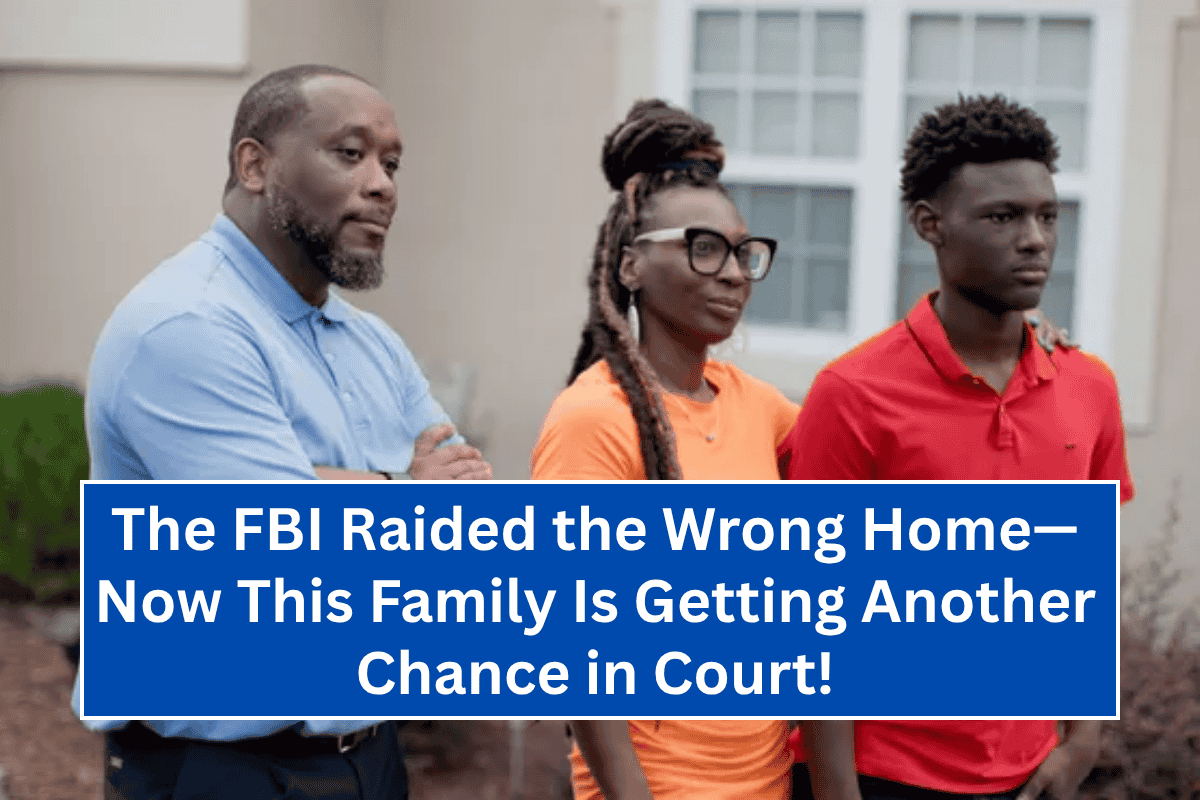In a landmark decision on Thursday, the U.S. Supreme Court ruled in favor of an Atlanta family, allowing their lawsuit against the FBI to proceed after a mistaken raid on their home.
The family had been subjected to a violent “predawn” SWAT team operation in search of gang members, which was carried out at the wrong address in October 2017.
The Incident: A Violent and Mistaken Raid
The raid occurred early in the morning on October 18, 2017, when a SWAT team stormed the home of Curtrina Martin, Hilliard Toi Cliatt, and Martin’s 7-year-old son Gabe. As previously reported, the officers tossed a flash-bang grenade and entered the home with guns drawn.
Martin and Cliatt, fearing a burglary, hid in a bedroom closet, while officers forced Cliatt onto the floor and pointed a gun at Martin’s face, demanding that she keep her hands up. Meanwhile, young Gabe was separated from the adults as the team executed the warrant.
The family, terrified and confused, had no idea that the FBI was searching for suspected gang members, and the agents had mistakenly raided the wrong home.
Legal Battle and Qualified Immunity
The family initially filed a lawsuit against the FBI for the traumatic raid, but their case was dismissed by a district court in Georgia, citing “qualified immunity.” This legal doctrine often shields government officials from lawsuits unless their actions violate “clearly established” laws.
The 11th Circuit Court of Appeals upheld this dismissal, even taking the controversial stance that the lawsuit was barred by the Constitution’s supremacy clause, which holds that federal law overrides conflicting state law.
However, the Martin family appealed the decision to the U.S. Supreme Court, which unanimously ruled in their favor. The Court held that the family’s lawsuit could move forward, allowing them to present their case again to the 11th Circuit Court of Appeals.
The Supreme Court’s Ruling
Justice Neil Gorsuch delivered the Court’s opinion, vacating the lower court’s dismissal and ruling that the supremacy clause should not be used to prevent the family’s lawsuit.
Gorsuch emphasized that the Federal Tort Claims Act (FTCA), which addresses the U.S. government’s liability for wrongful acts committed by its agents, is the governing law in such cases.
The FTCA allows for exceptions in specific circumstances, particularly when a government official is performing a “discretionary duty” as part of federal policy, a concept known as the “discretionary function exception.”
The ruling focused on whether the actions of the FBI agents—executing a warrant at the wrong address—could be considered a discretionary function, which would grant them immunity from legal liability. Gorsuch remanded the case back to the 11th Circuit, ordering a re-evaluation of whether the exception applies in this case.
Concurring Opinions
In a concurring opinion, Justices Sonia Sotomayor and Ketanji Brown Jackson underscored that the discretionary function exception might not apply in this case. They suggested that the FBI agents’ actions could be considered negligent or intentional, which would prevent them from using the exception to avoid liability.
Implications for the Federal Tort Claims Act
The ruling is significant because it reaffirms the Federal Tort Claims Act’s purpose: to provide a remedy for individuals harmed by federal government actions, whether intentional or negligent.
Patrick Jaicomo, a senior attorney with the Institute for Justice, who represents the Martin family, praised the Court’s decision. He said that the ruling allows the Martin family to continue their fight for justice and hold the government accountable for its mistakes.
Jaicomo also pointed out how the decision highlights the importance of ensuring remedies for victims of federal harms, acknowledging that the circuit courts had strayed from this purpose in previous rulings.
The FBI’s Mistake and the Family’s Pursuit of Justice
The case revolves around a tragic and costly mistake made by the FBI. While the agents had scoped out the correct location for the raid, a GPS error led them to the wrong house, where they executed the warrant.
After realizing the mistake, the lead officer on the case apologized to the family, but the emotional and physical damage had already been done. Nearly eight years later, the family’s quest for justice continues as their lawsuit moves forward.
The Supreme Court’s decision is a victory for the Martin family, allowing them to seek justice for the traumatic raid and the harm caused to their family.
The case underscores the importance of holding government agencies accountable for their actions, particularly when those actions lead to significant harm to innocent individuals.
The family’s legal battle is far from over, but the Supreme Court’s ruling provides them with another opportunity to pursue their case in the lower courts.






